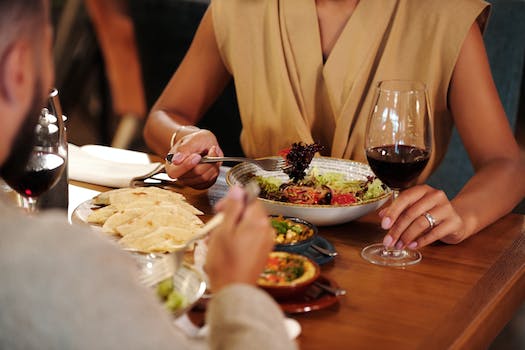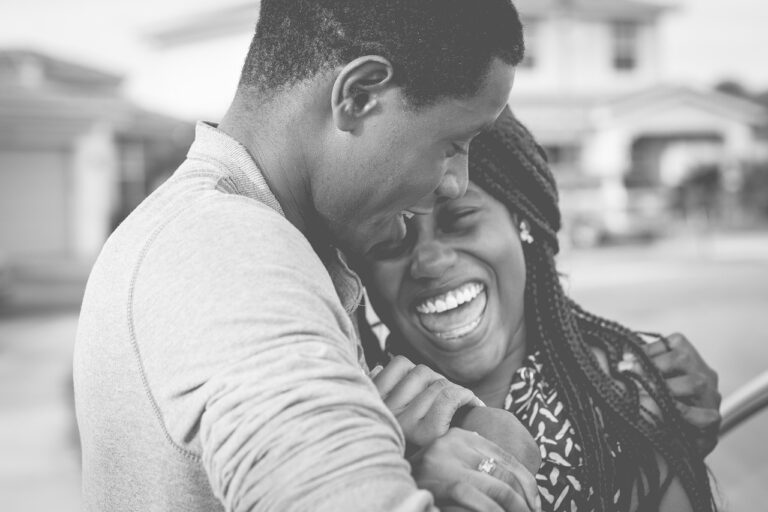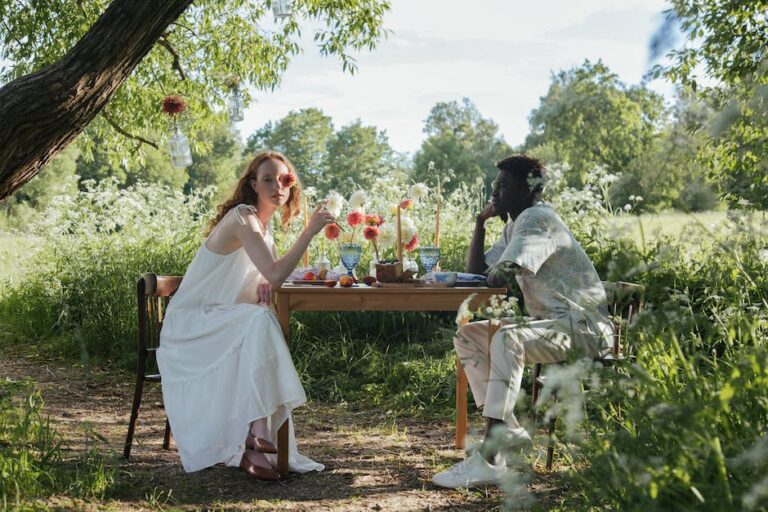Jewish Holidays and Romance: Celebrating Love in the Faith
Purim: A Festive Celebration of Love and Unity
Purim, a joyous celebration observed in the Jewish calendar, is a time when love and unity take center stage. This festive occasion, commemorating the deliverance of the Jewish people from a wicked plot, is marked by exuberant parties, lively costumes, and delectable treats. It is a time for families and friends to come together, sharing laughter and creating lasting memories.
At the heart of Purim lies the value of love and unity. The story of Purim teaches us the importance of standing united against adversity, just as the Jewish people did centuries ago. During this celebration, people exchange gifts of food and drink, known as mishloach manot, fostering a sense of camaraderie and friendship. Through this act of giving, individuals strengthen their bonds and spread love within their community. Purim reminds us that love and unity can overcome any challenge, and it encourages us to embrace these values in our daily lives.
Passover: Rediscovering Love and Freedom in the Exodus Story
Passover is an important Jewish holiday that holds deep significance for followers of the faith. It marks the liberation of the Israelites from slavery in Egypt and celebrates their journey towards freedom. The Exodus story, as recounted during Passover, is a powerful reminder of the enduring love and unwavering devotion that can overcome the most challenging of circumstances. It serves as a poignant reminder that love can provide strength and hope even in the darkest of times.
During Passover, families come together to retell the story of the Israelites’ exodus from Egypt.

Shavuot: The Connection Between Love and Torah
On the holiday of Shavuot, Jewish communities around the world come together to celebrate the connection between love and Torah. This special holiday commemorates the giving of the Torah to the Jewish people at Mount Sinai. The Torah, which is the sacred text of Judaism, is considered a gift of deep love from God. It is believed to contain not only a set of laws and commandments, but also wisdom, guidance, and lessons on how to live a meaningful and righteous life.
Shavuot is a time for Jews to reflect on their love for the Torah and the role it plays in their lives. Throughout this holiday, it is common for individuals to study the Torah intensively, engaging in all-night study sessions known as Tikkun Leil Shavuot. This act of delving into the teachings of the Torah reflects a deep connection and dedication to learning, as well as a profound love for the wisdom it imparts. Shavuot is a reminder that love and Torah are intertwined, shaping the values and traditions that have sustained Jewish communities for centuries.
Tisha B’Av: Love Amidst Reflection and Mourning
Tisha B’Av is a solemn day in the Jewish calendar that invites deep reflection and a collective mourning over historical tragedies. Despite the somber tone of the day, there is an underlying theme of love that resonates throughout this period of observance. It is a love that emerges from our shared history, collective identity, and unwavering commitment to one another as a community.
On Tisha B’Av, Jews around the world come together to remember and lament the destruction of both the First and Second Temples in Jerusalem. This shared remembrance serves as a powerful reminder of the sacred bond that unites us as a people. Amidst the sorrow, we find solace in the love we have for our heritage, our land, and our fellow Jews. We grieve not only for the physical losses but also for the spiritual connection that was severed with the destruction of these holy structures.

Rosh Hashanah: Finding Love and Renewal in the New Year
Rosh Hashanah, known as the Jewish New Year, is a time of reflection and introspection. It is a chance to look back on the past year, acknowledge our shortcomings, and seek forgiveness from both ourselves and others. It is also a time to renew our love for God and our faith in the future.
During Rosh Hashanah, the sounds of the shofar, a ram’s horn, fill the air. The blasts serve as calls to awaken our souls and reconnect with our spiritual selves. It is a powerful reminder to let go of negativity and embrace love and renewal. As we reach out to our loved ones during this time, we strengthen the bonds that hold us together and reinforce the love that sustains us throughout the year. Rosh Hashanah, therefore, provides us with the opportunity to find love and renewal as we embrace a fresh start in the new year ahead.
Yom Kippur: A Time for Love, Forgiveness, and Atonement
Yom Kippur is a sacred day in the Jewish calendar, observed as a time for reflection and repentance. It is a day when individuals come together to seek forgiveness from others and from God. During this solemn occasion, love takes center stage as a driving force for reconciliation and healing.
One aspect of Yom Kippur is the practice of seeking forgiveness from those we may have wronged. It is a time to reflect on our actions and take responsibility for the hurt we may have caused. Through genuine remorse and a sincere apology, relationships can be mended and love can be reignited. The act of seeking forgiveness not only allows for personal growth but also strengthens the bonds between individuals, fostering a sense of unity and compassion within the community.
In addition to seeking forgiveness from others, Yom Kippur is also a time for self-reflection and atonement. It provides an opportunity to examine our own shortcomings and make amends with ourselves. Often, this process involves acknowledging mistakes, learning from them, and committing to personal growth. By practicing self-love and forgiveness, individuals can experience a profound sense of liberation, allowing love to flourish within their own hearts.
Yom Kippur, therefore, serves as a reminder that love, forgiveness, and atonement are deeply interconnected. Through acts of love and forgiveness, individuals can heal wounds, strengthen relationships, and foster a sense of unity within their communities. This sacred day offers a chance for personal growth and transformation, ultimately paving the way for a more loving and compassionate world.
Sukkot: Embracing Love and Gratitude in Temporary Dwellings
Sukkot, also known as the Feast of Tabernacles, is a joyous holiday in the Jewish calendar that holds deep significance. It is during this time that Jewish communities across the world come together to embrace love and gratitude in temporary dwellings called sukkahs. These temporary structures are built with care and creativity, symbolizing the impermanence of life and the necessity of appreciating the present moment.
In the sukkahs, families and friends gather to celebrate and share meals, creating a sense of unity and togetherness. The walls of the sukkah may be made from natural materials such as branches or woven fabrics, allowing glimpses of the starry sky above. This connection to the elements and the outdoor setting fosters a unique atmosphere of intimacy and closeness. It is in these humble structures that we are reminded of the importance of love, not only for our loved ones, but also for the world around us.
Hanukkah: Illuminating Love and Miracles in the Festival of Lights
Hanukkah is a joyous Jewish holiday that holds a special place in the hearts of many. It is a time when families come together to celebrate and commemorate the miracle of the oil that lasted for eight days in the menorah. Beyond the historical significance, Hanukkah also serves as a reminder of the power of love and miracles in our lives.
The festival of lights is a time of illumination, both literally and metaphorically. The glowing candles of the menorah symbolize the triumph of light over darkness, and it is during this time that we are encouraged to spread love, kindness, and goodwill to those around us. Whether it is through small acts of kindness, spending quality time with loved ones, or reaching out to those in need, Hanukkah reminds us to embrace the miracles that exist in our lives and share the warmth of love with others. This holiday is a beautiful reminder that love has the power to illuminate even the darkest of times.
• The festival of Hanukkah celebrates the miracle of the oil that lasted for eight days in the menorah.
• It serves as a reminder of the power of love and miracles in our lives.
• The glowing candles symbolize the triumph of light over darkness.
• Hanukkah encourages us to spread love, kindness, and goodwill to those around us.
• Small acts of kindness can make a big difference during this time.
• Spending quality time with loved ones is an important aspect of celebrating Hanukkah.
• Reaching out to those in need is another way to embrace the miracles in our lives.
• Love has the ability to bring warmth and light even in difficult times.
Tu B’Av: Celebrating Love and Romance in the Jewish Calendar
Tu B’Av is a joyous day in the Jewish calendar, dedicated to celebrating love and romance. Traditionally observed during the full moon of the month of Av, this holiday is often referred to as the “Jewish Valentine’s Day.” On this special occasion, both single and married individuals embrace the opportunity to express their affection for one another.
One of the main customs associated with Tu B’Av is the gathering of young unmarried women who would wear white dresses and dance in vineyards, attracting potential suitors. This lively celebration fostered a sense of unity and allowed singles to meet and connect on a deeper level. In recent times, the holiday has evolved to include various modern activities such as singles’ parties, speed dating events, and social gatherings centered around fostering romantic relationships. Tu B’Av brings an atmosphere of love and excitement, reminding individuals of the importance of human connection and the beauty of romantic relationships.
Weddings and Love: Traditional Jewish Customs and Rituals
For centuries, Jewish weddings have been filled with rich customs and rituals, celebrating the union of two souls in love. The traditional Jewish wedding ceremony, known as the “chuppah,” symbolizes the creation of a new home and the start of a lifelong journey together. Under the canopy, or chuppah, the couple stands, surrounded by their loved ones, as they exchange vows and begin their new chapter as husband and wife.
One of the most beloved customs is the breaking of the glass at the end of the ceremony. With a joyful shout of “Mazel Tov!”, the groom shatters a glass under his foot, signifying both the fragility of life and the commitment to always remember the hardships of the Jewish people. This poignant moment also serves as a reminder that even in moments of great joy, we must remain aware of the world’s challenges and work towards making it a better place. Jewish weddings are a beautiful blend of ancient traditions and modern love, creating an atmosphere of joy, unity, and everlasting commitment.
What is Purim?
Purim is a festive celebration in the Jewish calendar that commemorates the salvation of the Jewish people from a plot to exterminate them in ancient Persia.
How is Purim related to love and unity?
Purim is a time when Jewish communities come together to celebrate and show love and unity. It is a holiday filled with joy, feasting, and acts of kindness towards one another.
What is Passover?
Passover is a significant Jewish holiday that commemorates the liberation of the Israelites from slavery in Egypt, as described in the Exodus story.
How does Passover connect to love and freedom?
Passover symbolizes the love and freedom that the Israelites experienced when they were freed from slavery. It is a time for reflection and gratitude for the freedom we have today.
What is Shavuot?
Shavuot is a Jewish holiday that celebrates the giving of the Torah (Jewish sacred texts) to the Jewish people on Mount Sinai.
How is love connected to Shavuot?
Love is connected to Shavuot as the holiday emphasizes the special bond between the Jewish people and the Torah. It is a time to deepen one’s love and connection to the teachings and values of the Torah.
What is Tisha B’Av?
Tisha B’Av is a solemn day of mourning in the Jewish calendar that commemorates the destruction of the First and Second Temples in Jerusalem.
How does love play a role in Tisha B’Av?
Love is present amidst the reflection and mourning of Tisha B’Av as this day reminds us of the love for our spiritual and cultural heritage, and the desire to rebuild and restore what was lost.
What is Rosh Hashanah?
Rosh Hashanah is the Jewish New Year, a time of reflection, introspection, and celebration.
How can one find love and renewal in Rosh Hashanah?
Rosh Hashanah is a time for self-reflection and renewal, allowing individuals to rediscover love within themselves and in their relationships. It’s a time to seek forgiveness and start anew.
What is Yom Kippur?
Yom Kippur is the holiest day in the Jewish calendar, known as the Day of Atonement. It is a day of fasting, prayer, and repentance.
How does Yom Kippur relate to love, forgiveness, and atonement?
Yom Kippur is a time for individuals to reflect on their actions and seek forgiveness from both God and others. It is an opportunity to repair relationships, demonstrate love through forgiveness, and seek atonement for past mistakes.
What is Sukkot?
Sukkot is a festive holiday that commemorates the Jewish people’s journey through the wilderness and their temporary dwellings during that time.
How can love and gratitude be embraced during Sukkot?
Sukkot encourages us to embrace love and gratitude by dwelling in temporary structures called sukkahs. It is a reminder of the transient nature of physical possessions and a time to appreciate the abundance in our lives.
What is Hanukkah?
Hanukkah is an eight-day Jewish festival that celebrates the miracle of the oil that lasted for eight days in the rededicated Second Temple in Jerusalem.
How does Hanukkah illuminate love and miracles?
Hanukkah symbolizes love and miracles through the lighting of the menorah, representing the miracle of the oil, and the celebration of the Jewish people’s resilience and determination in preserving their traditions.
What is Tu B’Av?
Tu B’Av is a minor Jewish holiday that celebrates love and romance.
How is love and romance celebrated during Tu B’Av?
Tu B’Av is often referred to as the “Jewish Valentine’s Day” and is associated with matchmaking and marriages.

What are some traditional Jewish customs and rituals related to weddings?
Traditional Jewish customs and rituals related to weddings include the signing of the ketubah (marriage contract), the breaking of the glass, the circling of the groom by the bride, and the wedding canopy known as the chuppah.
How do these customs and rituals reflect love in Jewish weddings?
These customs and rituals reflect love in Jewish weddings by symbolizing commitment, unity, and the joyous celebration of love between the couple and their families. They hold deep cultural and religious significance.






